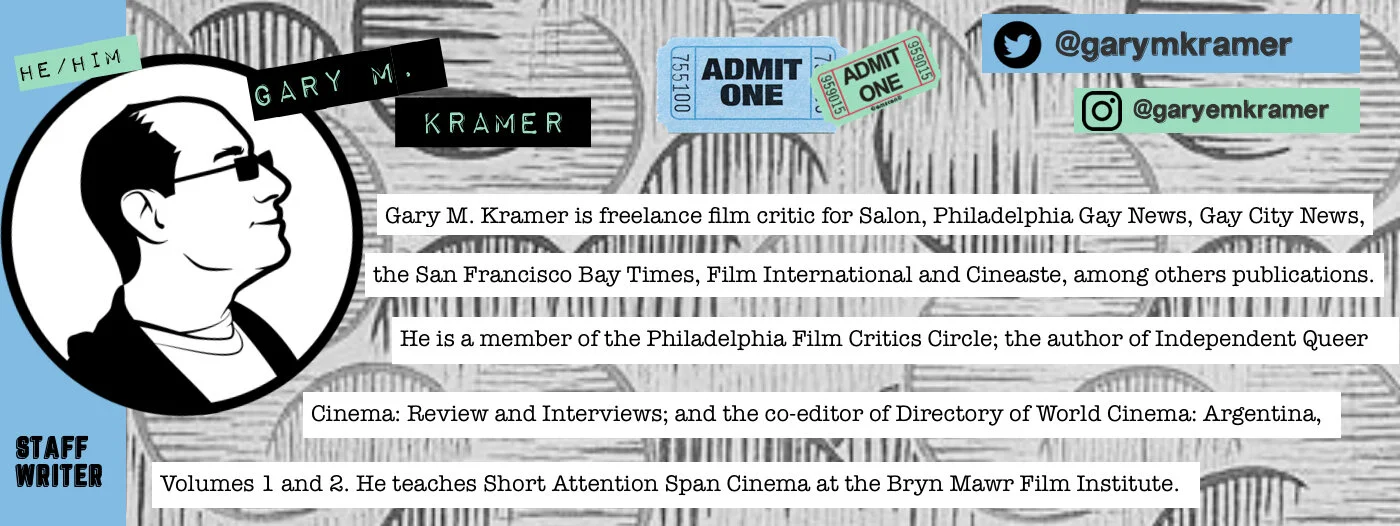PFF 2021: LA TRAVIATA, MY BROTHERS, AND I brings charm in finding its own voice
Directed by Yohan Manca
Written by Yohan Manca, Hédi Tillette de Clermont-Tonerre
Starring Maël Rouin Berrandou, Judith Chemla, Dali Benssalah, Sofian Khammes
Unrated
Runtime: 1 hour 48 minutes
Screening at the Philadelphia Film Festival October 31 at 10:00 am.
By Gary M. Kramer, Staff Writer
Nour (Maël Rouin Berrandou), the 14-year-old “I” in the family drama, La Traviata, My Brothers, and I, is a charmer. He doesn’t quite know what he wants, but he knows he doesn’t want to go to school. As he comes of age over the course of a summer in the south of France, Nour learns to sing opera; he plays it for his mother, who is in a coma, much to his three older brothers’ chagrin.
Director/cowriter Yohan Manca’s affable feature debut shows how opera music provides an outlet for Nour, whose life is hardly carefree. His older brother Hédi (Moncef Farfar) is trouble, and Nour often gets the brunt of it—as when someone tries to hit Hédi and connects with Nour instead. Nour gets some protection from Mo (Sofian Khammes), the peacekeeper; Mo spends his days hustling tourists at the local hotel pool. The eldest is Abel (Dali Benssalah), a hothead who has assumed fatherly responsibilities after his hoped-for career in soccer ended when he was injured.
The family scenes often involving yelling and hitting, but the love and bond the brothers have is heartfelt. When Hédi steals the money Nour was given to buy medication for their mother, Nour lies to Abel about losing it to protect his brother. Of course, Abel knows his siblings well enough to figure out what happened. This close-knit structure gives the film its backbone as the various brothers lives ebb and flow over the course of the summer.
But the main focus of La Traviata, My Brothers and I is Nour’s relationship with Sarah (Judith Chemla), an opera singer who teaches music in a classroom at the school Nour attends (and is painting as part of his community service). Intrigued by the arias coming out of Sarah’s classroom, Nour shows interest, and after performing Una Furtiva Lagrima, is asked to attend regularly. Alas, Nour’s not always able to arrive on time, which causes some friction between him and Sarah.
The film certainly posits Sarah as a replacement mother for Nour, and a hug he gives her after apologizing for mouthing off at her, is full of emotion. (So too is a hug Nour gives Abel late in the film). Sarah tries to encourage Nour’s singing, and while he does well under her tutelage—his face truly lights up when he is performing—he is distracted by his family issues. Hédi is trying to stay one step ahead of the police, and Adel wants Nour to work for a pizza place to bring in some money. The siblings also band together to break their mother out of the hospital when her brother places her there for caregiving.
The push-pull of Nour’s situation is endearing and it is hard not to root for the teenager as he does what he can, given the circumstances he finds himself in. A scene of Nour singing for his mother is wonderful, as is a moment where Sarah comes to visit, and tells Nour’s comatose mother about her son’s talent.
Manca also provides a nice sense of place including some grittiness in the family’s apartment in the council estate where they live. However, for all its merits, La Traviata, My Brothers and I does feel a bit flabby at times. Nour’s possible romantic interest with a female student of Sarah’s is underdeveloped, while an episode featuring Mo trying to seduce a tourist is overdone. (A later scene of Mo kissing a male conquest likewise conveys he is a gigolo, but it too, feels unnecessary). The film also tries to jerk tears during some melodramatic moments.
But these few flaws hardly diminish what is otherwise a most enjoyable film. Maël Rouin Berrandou will steal viewers hearts, and Chemla (Manca’s real-life partner) is touching as his mentor. In support, Benssalah distinguishes himself with a mercurial performance.
La Traviata, My Brothers and I is all about finding one’s voice, and Manca’s feel-good film shows the same kind of promise as its protagonist, Nour.


